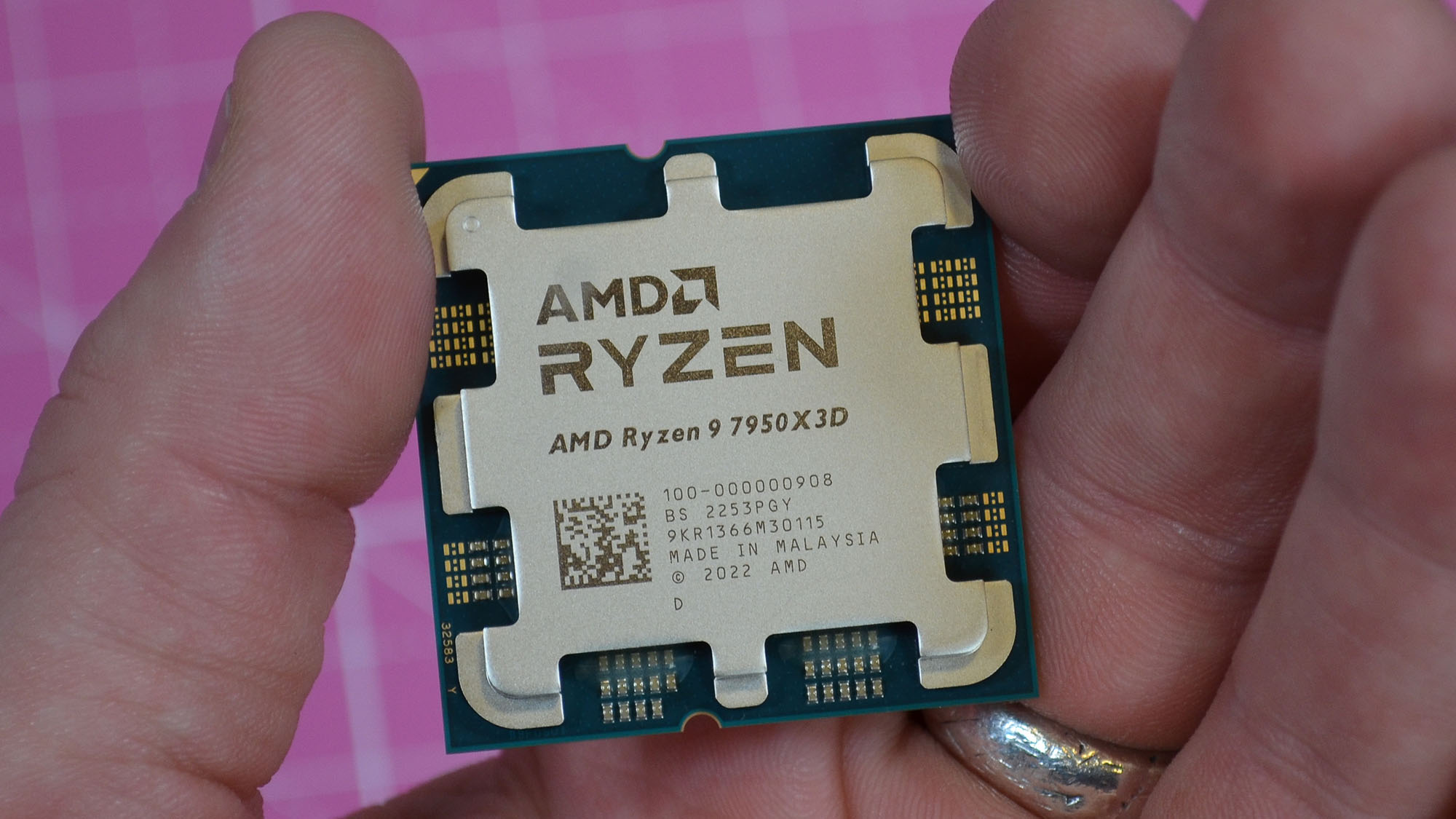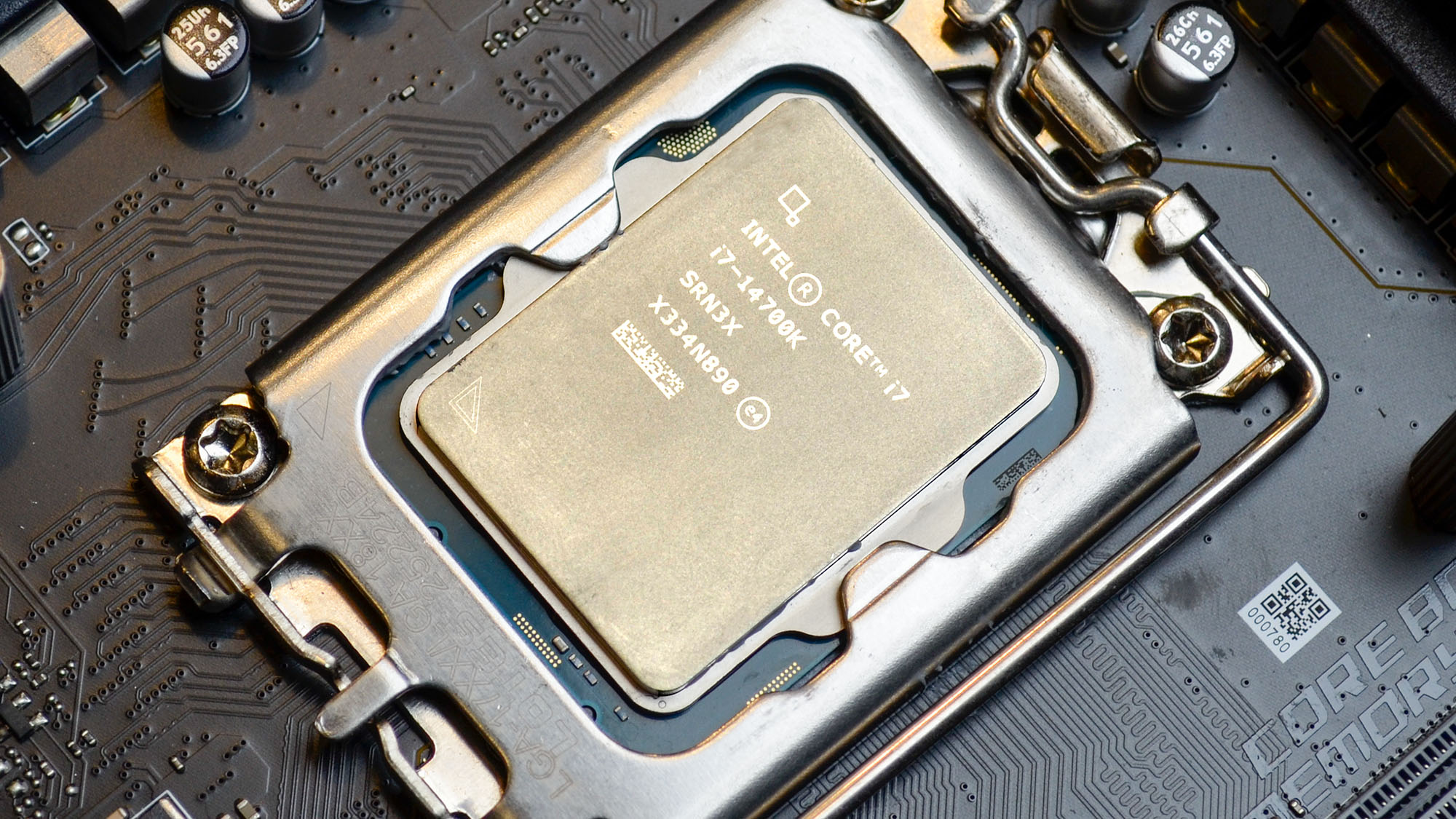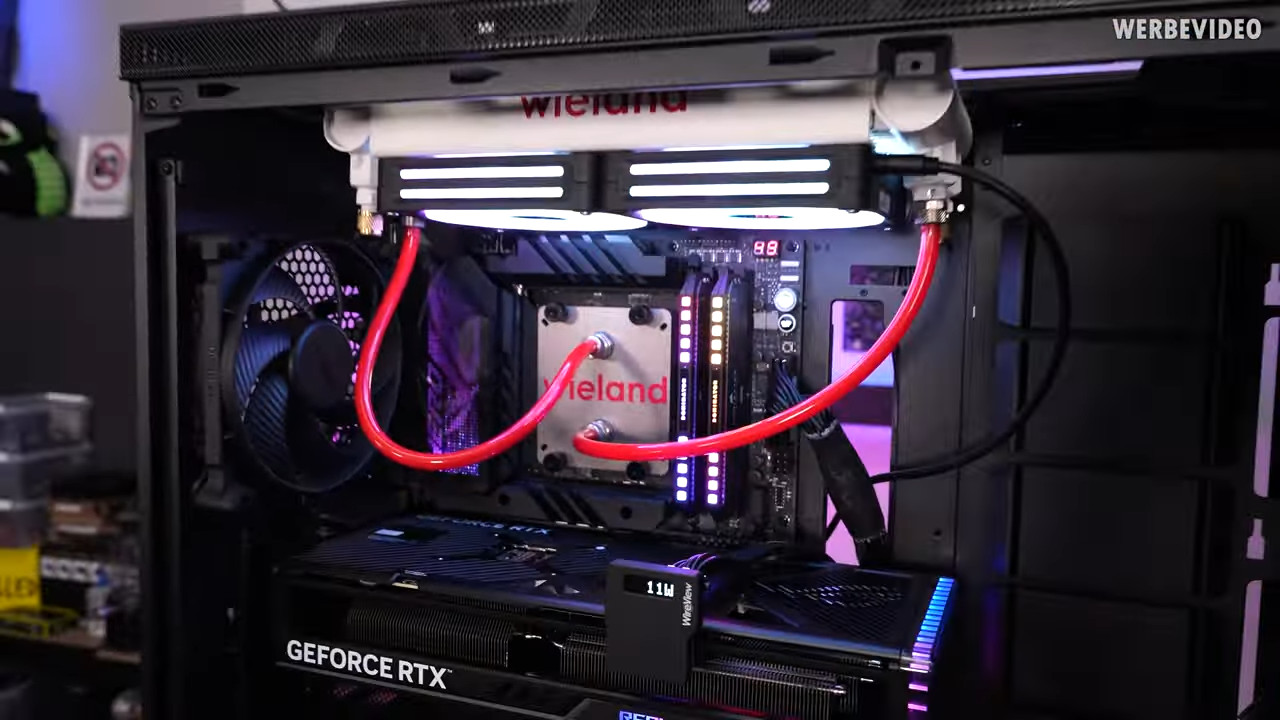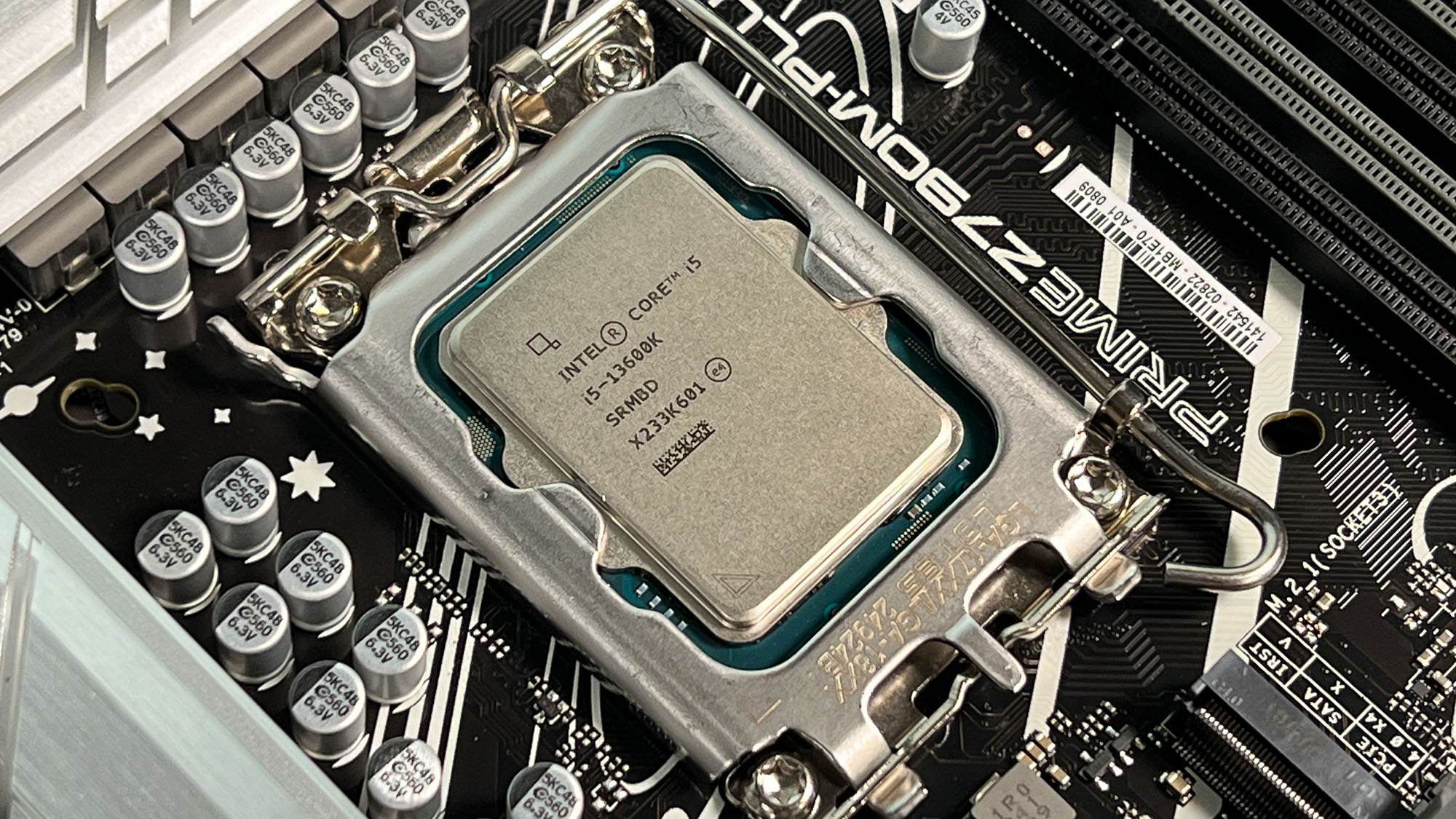How to choose a CPU: top tips for finding the right chip for your PC
Learn how to choose a CPU that's right for your needs and budget

When it comes to building or upgrading a PC, the central processing unit (CPU, or just processor) is at the heart of the system, powering its capabilities and performance. Selecting the right CPU can be a balancing act of price, performance, and future-proofing your setup.
But it’s not enough to just buy the best processor you can afford, as there is no single 'best Intel processor' or 'best AMD processor'. Which one is right for you will largely depend on what you need the processor to do, since you can easily invest hundreds of dollars or pounds into a processor that is so overpowered you rarely, if ever, fully leverage its capabilities.
This can be a colossal waste of money, as higher-end processors can come with all sorts of extra costs in terms of CPU cooling and motherboard upgrades that might be entirely unnecessary.
In order to find the right processor for your needs and budget, it’s essential to know how to choose a CPU from among the multitude of options on the market. Fortunately, I’ve extensively tested and used all of the processors currently on the market, and I’m here to help walk you through the process of choosing the right CPU for your PC.
Understanding CPU Specifications

Before diving into picking a CPU, it's vital to understand the basic specifications that define a CPU's performance:
Cores and Threads: A core is essentially a CPU within a CPU, capable of performing operations independently of other cores. A multi-core processor will be able to multitask more efficiently, which can significantly improve performance. Threads refer to the number of tasks a core can handle simultaneously. Most standard CPU cores are single-threaded, meaning they can only execute a single task per clock cycle, but higher performing cores are capable of ‘hyperthreading’, which allows them to perform two tasks per clock cycle, which can greatly improve performance in applications that utilize multithreading.
Clock Speed: Measured in multiples of hertz (Hz, MHz, GHz), the clock speed of a processor indicates how many clock cycles a CPU runs through every second, and since a CPU can process an instruction (or two in cores with hyperthreading), this directly relates to how many instructions a processor can execute every second. A single hertz represents a single cycle, so a kilohertz (kHz) is a thousand cycles a second, while a megahertz (MHz) is a million cycles per second. Modern CPUs are well into the gigahertz (GHz) range, or some multiple of a billion cycles per second.
Sign up for breaking news, reviews, opinion, top tech deals, and more.
While clock speeds are the most direct measure of how well a CPU will perform, higher clock speeds alone are not the only factor in overall performance.
Cache Size: The cache is the CPU's onboard memory, used to store frequently accessed data for quick retrieval. Larger caches can improve performance by reducing the time needed to access data from the main memory or RAM.
Thermal Design Power (TDP): TDP is the maximum amount of heat a CPU generates under heavy use, measured in watts. It can indicate how much cooling your CPU will require and its power consumption.
Integrated Graphics: Some CPUs come with integrated graphics, eliminating the need for a separate graphics card for basic tasks and light gaming. However, dedicated graphics cards are recommended for intensive gaming and professional workloads.
Identifying Your Needs

Your choice of CPU should be guided by how you intend to use your PC:
Gaming: Look for CPUs with high clock speeds and larger cache sizes. PC games are almost always single-threaded applications, so having more cores won’t necessarily improve gaming performance, but processing more instructions per second is essential for games that require complex physics calculations and higher cache sizes allow for more essential data for these calculations to remain in the fastest possible computer memory.
While this is broadly true for all gaming applications, if you are gaming at higher resolutions (1440p and above), then your graphics card is going to overtake your CPU as the framerate bottleneck, so the impact of higher CPU performance at 1440p and above is considerably less or eliminated altogether.
With all that said, an Intel Core i7 or AMD Ryzen 7 chip is usually more than enough for gaming, and if you can find an AMD Ryzen 7 with 3D-VCache (designated by an 'X3D' in the model number), this is even better.
Content Creation and Professional Workloads: Tasks such as video editing, 3D rendering, and large-scale data computations benefit from CPUs with more cores and threads, which can handle parallel processing efficiently. In this instance, clock speeds matter, but having twice as many cores that are 25% slower will end up giving you better performance in these kinds of workloads. Generally, you'll be looking for an Intel Core i9/AMD Ryzen 9 processor for this kind of workload.
General Use and Productivity: For browsing, office applications, and light photo editing, a mid-range CPU with a decent balance of clock speed and cores will suffice. You shouldn’t need more than an Intel Core i5/Intel Core 5/AMD Ryzen 5 for this kind of computing, and in some cases an Intel Core i3/Intel Core 3/AMD Ryzen 3 will be sufficient for casual users who don’t intend to do any gaming or content creation work.
Considering Compatibility and Future-Proofing

Compatibility with your motherboard is crucial. Ensure the CPU you select fits the socket on your motherboard and that the motherboard chipset supports the CPU's features. Upgradability should also be a consideration; opting for a newer platform might offer better support for future CPU generations.
Future-proofing involves selecting a CPU that will meet your needs for several years. While it's impossible to completely future-proof a PC due to the rapid advancement of technology, choosing a CPU with slightly more performance than you currently need can help your system remain relevant longer.
Balancing Performance with Budget
Budget often dictates the range of CPUs available to you.
High-end CPUs, like Intel Core i9/AMD Ryzen 9 processors, offer the best performance across all workloads, but come at a significant investment in the chips themselves as well as the cooling and motherboard needed to support them.
Mid-range CPUs like the Intel Core i7 and AMD Ryzen 7 series processors typically offer the best balance between price and performance, and are suitable for most users (including serious PC gaming).
Entry-level CPUs like the Intel Core i5/AMD Ryzen 5 and below are the most affordable but might struggle with intensive tasks, so are much better used in basic family PCs or business computers that primarily use cloud platforms like Salesforce or similar.

Read reviews and benchmarks
Before making a decision, consult processor reviews and compare benchmark scores from reputable sources. You don’t even have to stick with the reviews I do here at TechRadar, and I’d encourage you to read as many processor reviews as possible to get a better overview of a processor's capabilities across a whole range of tests and use cases
These provide real-world performance data that you can use to compare different processors you might be considering, and CPU reviewers almost exclusively handle these kinds of reviews for their publications, so they’ll have tested several chips to prepare their reviews, so they will be experts on which CPUs are good for which tasks.
Just make sure to focus on benchmarks that reflect your intended use, such as gaming, rendering, or multi-tasking performance, rather than go for which processor scores the absolute ‘best’ overall - since this will likely include use cases you may not actually use the processor for.
Making Your Choice
With an understanding of CPU specifications, a clear idea of your needs, a budget in mind, and knowledge of how to analyze CPU reviews, you'll be well-equipped to choose the right CPU for your PC. Consider the following steps to finalize your decision:
Shortlist CPUs that meet your core and thread requirements, clock speed preferences, and budget.
Check each chip’s compatibility with your motherboard, ensuring the socket matches and the chipset supports the CPU's features.
Compare performance using benchmarks and reviews, focusing on scenarios that match your use case.
Evaluate extras like integrated graphics or bundled coolers, which might offer additional value or save on future purchases.
Consider the future, but remember that technology evolves quickly. Select a CPU that meets your needs for the foreseeable future without overly prioritizing future-proofing at the expense of current performance or budget constraints.
Choosing the right CPU is a critical step in building or upgrading a PC. By carefully considering your needs, budget, and the specifications of available CPUs, you can select a processor that offers the best performance for your specific requirements, ensuring a balanced and capable PC setup.

John (He/Him) is the Components Editor here at TechRadar and he is also a programmer, gamer, activist, and Brooklyn College alum currently living in Brooklyn, NY.
Named by the CTA as a CES 2020 Media Trailblazer for his science and technology reporting, John specializes in all areas of computer science, including industry news, hardware reviews, PC gaming, as well as general science writing and the social impact of the tech industry.
You can find him online on Bluesky @johnloeffler.bsky.social